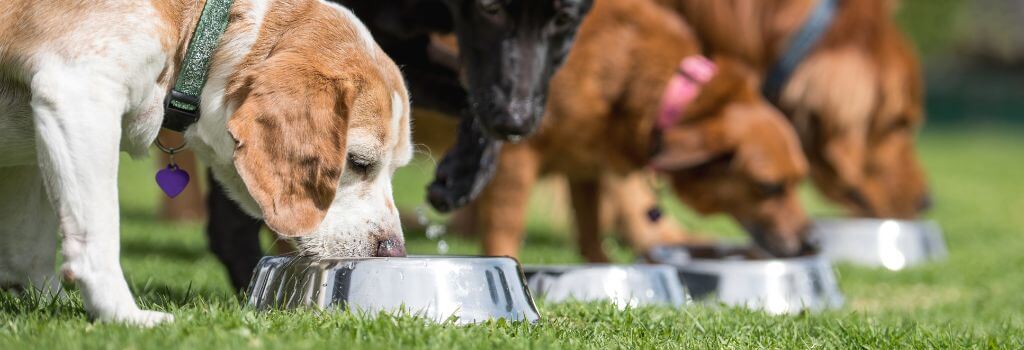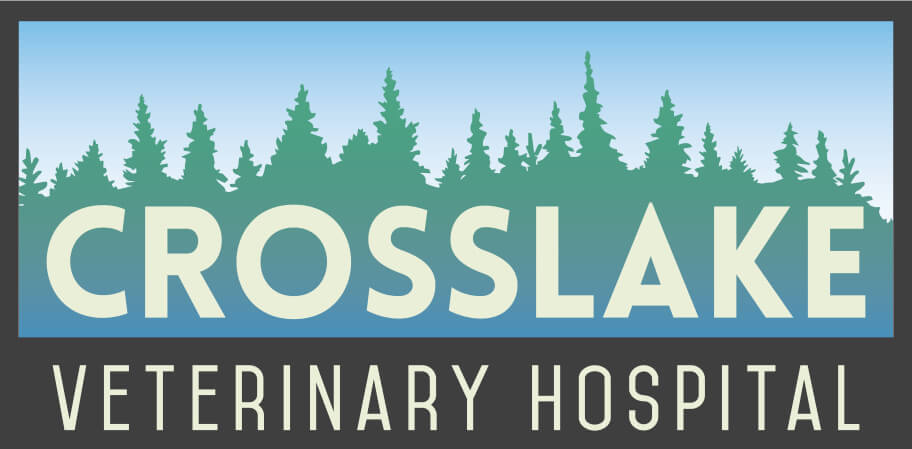Nutrition plays a crucial role in your pet’s health and happiness. With so many options available and an overwhelming amount of advice online, how can pet owners distinguish facts from opinions? That’s where your trusted veterinarian can help. Although choosing the best food for your pet may seem daunting, knowing what to look for and what questions to ask can simplify the process. To help you navigate the often confusing world of pet food, we’ve compiled recommendations for interpreting product labels and descriptions, so you can make an informed decision about the best diet for your pet.
Nutritional Adequacy and Selecting the Appropriate Life Stage
Commercial pet foods are required to print a nutritional adequacy statement on the pet food packaging. This statement relays what species and lifestage the food is intended for as well as if any feeding tests or trials have been performed. The American Association of Feed Control Officials (AAFCO) recognize the following life stages for pets:
- Growth: For growing puppies and kittens
- Gestation/Lactation: For pregnant or nursing dogs and cats
- Adult Maintenance: For adult dogs and cats
- All Life Stages: This diet meets the nutritional needs for all ages. These diets tend to be higher in calories since they are essentially formulated for growing animals.
Our pets have different nutritional needs based on their species, age, size, and activity level. Selecting a pet food that is labeled for your pet’s species and current life stage is the first step to ensure they are receiving the appropriate nutrients.

Deciphering Food Labels
Pet food labels can be confusing, but understanding the key basics can help pet owners identify the most important information for their pets:
- The Ingredient List: Commercial pet food manufacturers are required to print a list of ingredients on their packaging in descending order of their pre-cooked weights. Pet owners often rely on the ingredient list when selecting a diet. While high quality ingredients are important, the nutrients obtained from the ingredients is what matters most. Every ingredient on the label serves a purpose.
The Guaranteed Analysis: The guaranteed analysis of pet food provides the major nutrient information (protein, fat and carbohydrates) but it can be misleading. The guaranteed analysis is listed on the packaging as maximum and minimum percentages in an “As fed” basis. “As Fed” means the food in its final form (kibble, canned, fresh, etc). This becomes extremely difficult for pet owners to compare foods because in order to properly compare nutrient profiles we need to do so on a dry matter basis meaning all of the water has been removed. Dry Matter percentages are not required to be on pet food labels so this means we need to do a bit of math to properly make a comparison.

What Questions Should I Ask?
When you are researching a specific pet food, take a close look at the pet food company’s website. There are a few things you should be looking for and questions you should ask:
- Is there a board-certified veterinary nutritionist on staff? Many companies will say "made in consultation with a Veterinary Nutritionist", which means a nutritionist with specialized training is NOT "on staff” supervising all formulations and performing feeding trials. The company may have spoken to a nutritionist to help with designing their foods initially, but there is not a nutritionist regularly advising and evaluating their diets for in house quality control.
- Does the company perform feeding trials? Excellent pet food companies perform lifetime animal feeding trials to assure their foods meet the needs of the animals for which they are labeled.
Do they have their own manufacturing plant? Many smaller and boutique label pet foods utilize a co-packer who manufactures many foods under different labels. This takes them out of the chain of responsibility for safety issues. Responsible companies supervise their processes from start to finish and have multiple internal safety controls on-site within their plants to assure quality control in every single batch.
Grain Free/Boutique Diets
It’s a common myth that grains are "bad" or lack nutritional value for pets. In fact, grains are an excellent source of carbohydrates, protein, fiber, B vitamins, and essential fatty acids. Veterinary cardiologists have linked grain-free diets—especially those high in legumes, as well as exotic and boutique diets—to an increased risk of Dilated Cardiomyopathy (DCM) in breeds that don’t typically have a genetic predisposition to this condition. DCM causes the heart's chambers to enlarge, impairing its ability to pump blood effectively. Unless your veterinarian specifically recommends a grain-free diet for your pet, it’s best to avoid them.
Raw and Freeze Dried Diets
There is no scientific evidence to support the claim that a raw or freeze-dried diet is better for your pet. Just as humans have evolved, so have our pets. Cooked/processed diets help eliminate dangerous pathogens such as salmonella and E. Coli. Raw diets not only pose a risk to your pet's health but can also expose human family members to these dangerous pathogens.
Homemade Diets
All pet owners want the best for their beloved dogs and cats. While you may be tempted to cook for your pet at home, it’s important to ensure that any homemade diet is nutritionally complete and balanced. This requires precise amounts of specific ingredients, and often the addition of supplements to meet all necessary nutrient levels. If you're considering a home-cooked diet for your pet, it's important to discuss the process with your veterinarian. They may refer you to a board-certified veterinary nutritionist who can create a custom diet tailored to your pet’s unique needs.
Choosing the right diet for your pet isn’t about following the latest trend or picking the most popular brand; it’s about ensuring your pet receives balanced, complete nutrition tailored to their specific needs. With so much information available, it can be overwhelming to make an informed decision. That’s why working closely with your veterinarian is essential. They can provide guidance based on scientific evidence and your pet’s individual health requirements. Together, you can navigate the complexities of pet food labels, avoid marketing pitfalls, and select a diet that supports your pet’s overall well-being. After all, proper nutrition is the foundation of a long, healthy, and happy life for your pet!
If you have questions and you'd like to reach out to us, you can call us directly at (218) 692-4400, or you can email us at [email protected]. Don't forget to follow us on social media Facebook, Instagram.

